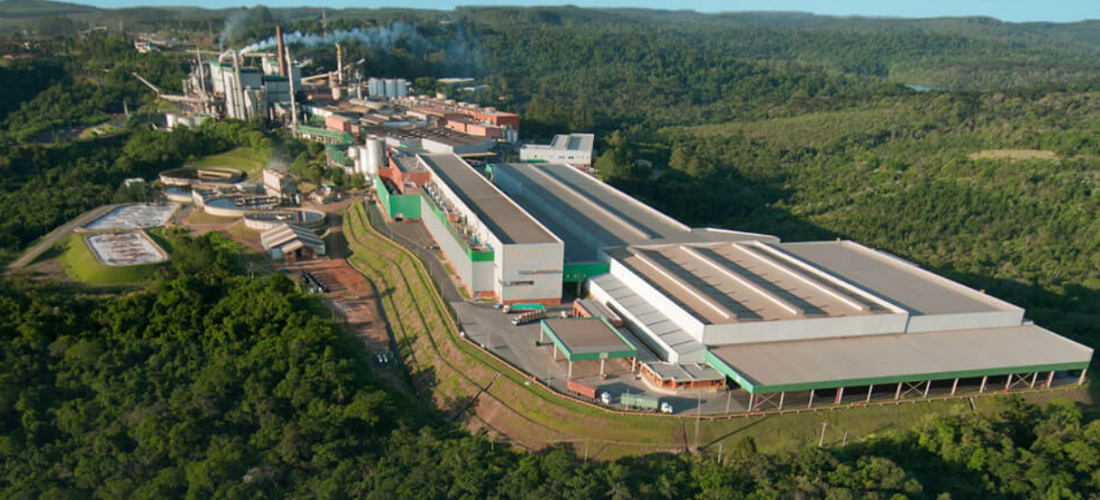
Klabin sets up logistics project in Paranagua
Oct, 31, 2022 Posted by Gabriel MalheirosWeek 202244
The only producer of three types of pulp in the country, the largest manufacturer of corrugated cardboard boxes, and the main supplier of packaging paper, Klabin is on the way to consolidating a mega logistics structure in the Port of Paranagua, which in 2023 will reach a capacity of 3 million tonnes per year.
After inaugurating the country’s largest private operation of non-refrigerated containers in 2021, the company plans to open a new terminal by January next year, according to Roberto Bisogni, director of Operational Planning and Logistics at the company. The lease won in 2019 in a federal government auction should add a capacity of 1.25 million tonnes per year to the port.
The new terminal is the most recent link in a chain of investments made in Paranagua in recent years.
The company has owned, since 2016, a private terminal 5 km away from the port. Its largest expansion took place last year, with the inauguration of the so-called KBT project that received BRL 300 million in investments. In addition to the construction of a new terminal, Klabin set up a logistics operation with TCP (Terminal de Containers de Paranaguá) and Brado Logística (from Rumo) to build a train track connecting a factory known as Puma II in Ortigueira to Paranaguá, both in the state of Paraná.
Such investments have left their mark on the state’s cargo throughput. From January to July, pulp and paper exports from the state rose 21% in the year to July, to more than 1 million tons, according to government data.
The KBT project witnessed the moment of over 16,000 containers for export in its first year, which increased the transport of cargo by rail in Paraná by 40%, according to the company. By the time the first machine starts working in Puma II by December, around 20,000 containers will have been exported.
“KBT is part of a large investment project to connect the Telemaco Borba [Monte Alegre] and Ortigueira units to the port of Paranaguá. The decision to invest in rail transportation was made taking into account costs, advantages in terms of sustainability, and the importance of not overloading the region’s road infrastructure,” says the executive.
The terminal’s current capacity is 5,000 containers per month, which is enough to serve the increased output after the expansion of the Puma II unit in 2023 when a new card machine will come into operation. And even if further expansions are approved, KBT will still be able to absorb additional volume increments, he says.
The Puma II project, which will cost R$12.9 billion until 2023, includes two paper machines integrated into pulp production and represents Klabin’s largest disbursement to date. MP 27, which has been in operation for just over a year, manufactures Eukaliner, the world’s first kraftliner made entirely of eucalyptus pulp. In addition, MP 28, which will begin operations in 2023, will produce packaging cards for export.
For TCP, controlled by China Merchants Port, Klabin now represents 4.7% of the terminal’s exports. In 2023, with the operation of the second Puma II machine, this share should increase to 7.1%. “To get an idea of the magnitude of the KBT project, Paranaguá may surpass the Port of Santos in terms of the use of rail in cargo transportation,” says Mateus Campagnaro, TCP’s marketing and logistics manager.
The new terminal leased by Klabin in Paranaguá, which will start operating soon, will be used to move loose cargo produced with the infrastructure created during the first phase of the Puma project. In addition, it will serve as an alternative outlet for the Puma II. The terminal will also have a rail connection.
“In recent years, due to logistical bottlenecks and the lack of containers, the group has explored shipping alternatives. We have taken back practices from the past, such as shipments of paper reels and fluff reels, which were not loads originally designed for breakbulk,” says Bisogni.
The executive says that the logistical chaos triggered by the pandemic is already showing signs of relief, which should only gradually increase.
“We are starting to see positive signs, such as less difficulty getting export bookings and lower freight prices in the [short-term] market, even though Klabin has contracts with shipowners. However, rectifying the chain occurs much slower than when the problems were created. We will not necessarily return to the same levels, but things have progressed,” he said.
Source: Valor Econômico
To read the full original article, please go to: https://valor.globo.com/empresas/noticia/2022/10/31/klabin-monta-megaprojeto-logistico-em-paranagua.ghtml
-
Other Logistics
May, 19, 2022
0
Air France-KLM and CMA CGM announce agreement to unite air transport operations
-
Trade Regulations
Apr, 02, 2024
0
Bill wants to increase tax on live cattle exports in Brazil
-
Ports and Terminals
Mar, 13, 2025
0
Santos Port Authority Opens Bidding Process for Barnabé Island Access Road Expansion
-
Automotive
Mar, 03, 2022
0
Brazil’s exports of high-tech products fall to worst level since 2001

